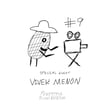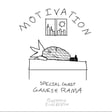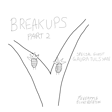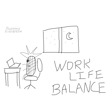Anxiety is one of the most common mental heath struggles people deal with yet it's hard to even pin down that you're anxious and what you're anxious about. On this round of the Pineapple Blunt Rotation, we're diving into Ahir's experiences with anxiety as it developed throughout the years since childhood and what the long road to healing looks like for him.
Timestamp for Beginning of Discussion - 9:15
-
Art of the Week:
The Night We Met, Lord Huron - https://open.spotify.com/track/0QZ5yyl6B6utIWkxeBDxQN?si=e1ece3bc2ab54b4d
Microphones in 2020, The Microphones - https://pwelverumandsun.bandcamp.com/album/microphones-in-2020
Books Referenced:
The Mindful Self-Compassion Workbook - https://www.amazon.com/Mindful-Self-Compassion-Workbook-Yourself-Strength/dp/1462526780












